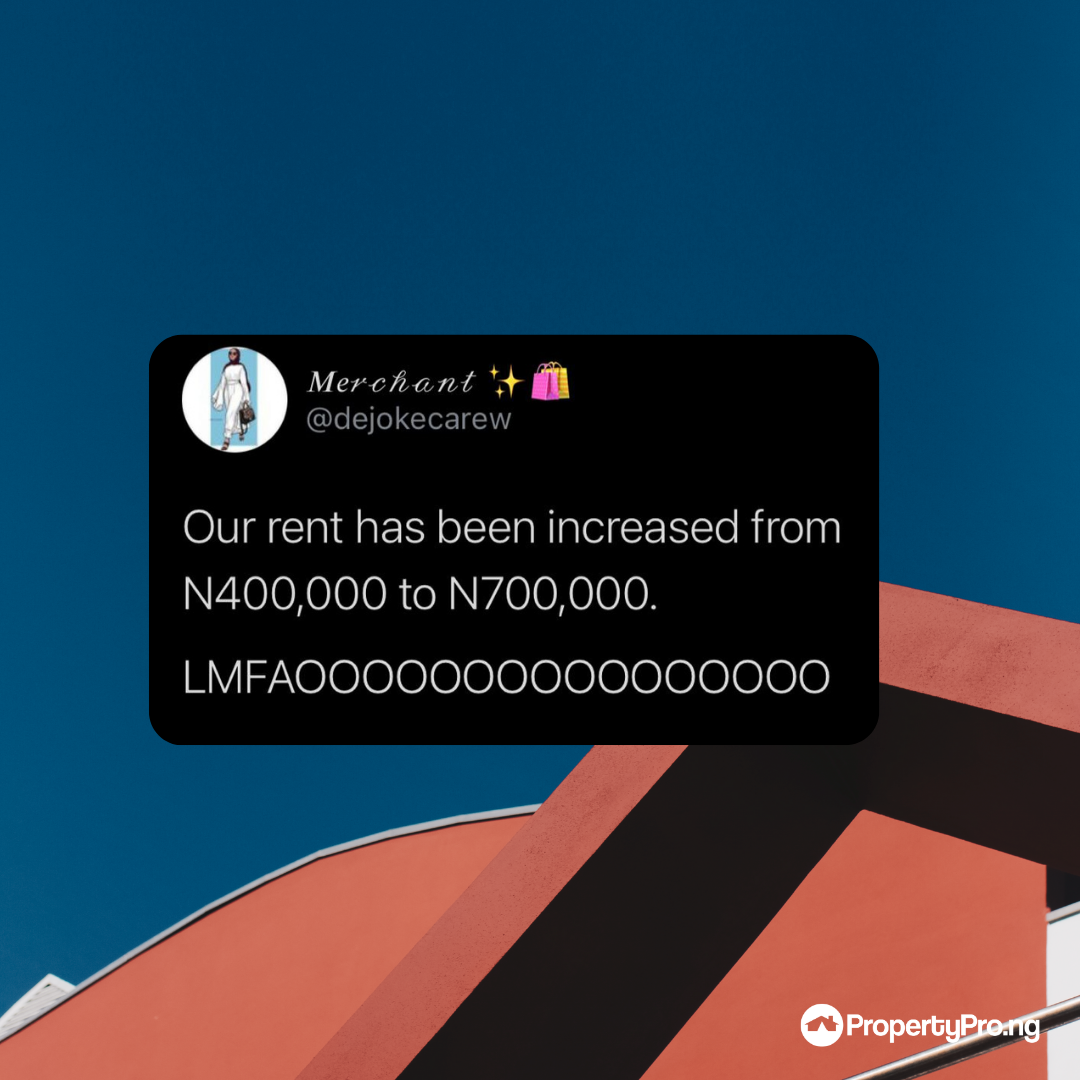Negotiating Out of Line Rental Increment

Recently, we saw a shocking tweet from a lady revealing an “intolerable rental increase” by her landlord. Here, our real estate expert discussed how to navigate yourself in situations with unchecked landlords.
What the Law State
The Lagos State Tenancy Law enacted in August 2011 governs the landlord-tenant relationship. The Law is made to regulate rights and obligations under tenancy agreements and the relationship between both parties.
Under the Lagos State Tenancy Law, 2011. Section 37, a tenant can apply to court for a declaration that the increase in rent is unreasonable and the court has the power to determine whether or not the same is reasonable, taking due cognizance of the rent payable in similar apartments in the locality.
If the court is satisfied that the increase is unreasonable, it can change it to a specific amount.
The law applies to both business and residential premises.
In Nigeria, Landlords and their agents are sometimes in the habit of jacking up the rent arbitrarily. You can find a scenario, where rent that was previously N400,000 is now N 700,000 within the space of a year or two of the tenancy. That’s a 57% increment!

The reality is that between two contracting parties (in this case the landlord and the tenant) there is usually one with the upper hand, a stronger bargaining power. The law respects our freedom to enter into contract agreements and will usually not intervene in a bad bargain, particularly in commercial transactions. Anyway, the fact that the new law excludes any prescriptions for rental rates means that market forces will prevail, but if and when the law is called upon to intervene, the courts will take several matters into consideration including prevailing market rates for similar properties in the neighborhood.
But how many people will take the time to go to court and test the law? Lack of trust and untimeliness in the judiciary is also widespread.
When a tenant receives a letter of rent increase from their landlord, what is stated in the landlord’s letter is at best an offer or a proposal made to the tenant. The tenant is left with the option to either accept it or make a counter offer. The courts have said that the matter of rent increment must be supported by an agreement to that effect.
The landlord-tenant relationship and the issue of rent payable is a contract. For a contract to exist there must be a meeting of the minds (landlord and tenant agree on all the terms of the contract), that being the case, the landlord cannot unilaterally alter the terms of the agreement and increase the rent.
A landlord’s unilateral decision to increase the amount of rent payable by the tenant is ineffective.
Should in case a tenant receives a letter from the landlord informing him of an increase in rent, he/she should approach the landlord and try to negotiate an agreeable rent, if he/she feels that the landlord’s increase is unreasonable.
If the parties (landlord and tenant) are unable to agree on what the new rents should be, then the landlord is required to follow due process in evicting the tenant from the property, that is, he can only do so by an order of court.
In essence, there are options available to a tenant whose landlord has jacked up the rents.
- You either try to negotiate the rent with the landlord and remain in the premises; or
- You institute an action in court, challenging the reasonableness of the said rent, and urging the court to fix the rent on a specific amount, based on the assessed value of the property.
Suffice to state here that under the tenancy law in Lagos State, if an action is pending in court challenging the reasonability of an increase in rent, it is unlawful for the landlord to eject the tenant pending the determination of the action.
- Vacate the premises and get another property.









